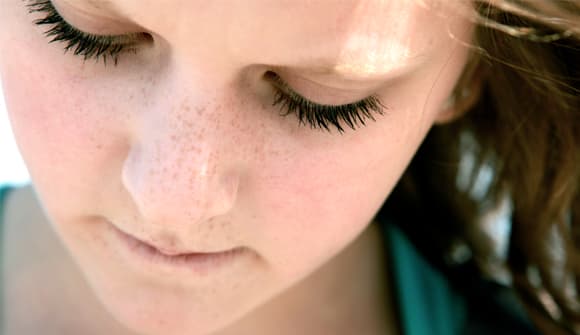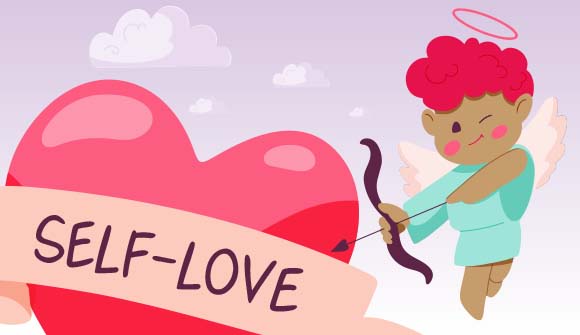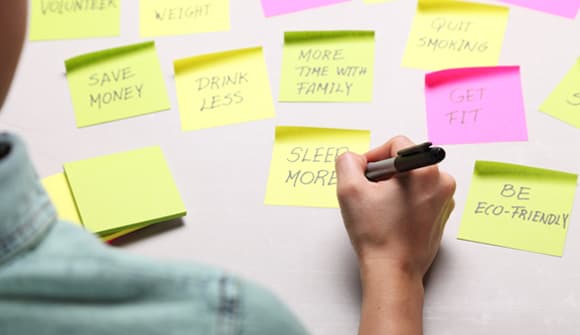Young lives ended too soon
Youth suicide is on the rise. What can you do?
Article Author: Beth Stambaugh
Article Date:

Signs of mental health problems and thoughts of suicide are on the rise among preteens and teens, according to a study by the Centers for Disease Control and Prevention (CDC) conducted between 2011 and 2021.
And unfortunately, suicide is the second-leading cause of death for people between the ages of 10 and 34.
"It's not something you hear about often, but it happens more than you would think," said Jessica Winberry, prevention coordinator for Safe Kids Northeast Florida, which is led by THE PLAYERS Center for Child Health at Wolfson Children's Hospital.
According to Winberry, who also teaches Youth Mental Health First Aid, the causes aren't easy to pinpoint.
"Suicidal behavior is complicated and rarely the result of a single issue," she said.
Who's at risk?
Mental health issues that can lead to suicidal behavior typically develop in the teen and preteen years. Winberry said one of the biggest factors is experiencing a traumatic event.
"It may not seem significant to others, but if the person perceives the event as traumatic, it can have a negative and lasting effect on mental health," she said.
Warning signs of depression or possible suicide risk
Identifying red flags can be tricky because teenagers are often moody.
"Sometimes it's hard to distinguish between normal adolescent behavior and something more serious," said Winberry.
While people may think asking someone about thoughts of self-harm will plant the seed to carry it out, experts say that's not the case. It can be a tough conversation to have, but it's one of the most important talks to have with your child, said Francesca Varallo Sims, PsyD, director of education and training for Baptist Behavioral Health and Wolfson Children's Behavioral Health.
"If you think there might be an issue, don't delay the conversation," she said. "By just acknowledging the topic, you're opening the gate for children to confide in you about important things happening in their lives if and when they're ready."
It's also crucial to recognize and treat depression in young kids before it becomes worse.
"Early intervention is key," Winberry said. "Ask how they're feeling in a nonjudgmental way. Don't discredit their feelings; just try to listen."
What can parents do?
If you feel your child needs professional support, Wolfson Children's offers the full continuum of pediatric and adolescent mental health services, including both inpatient and outpatient programs, testing services and crisis management.
"Our providers assess and treat a multitude of emotional concerns, psychiatric symptoms and diagnoses," Dr. Varallo Sims said, adding that depression symptoms can improve with the right treatment over time. Evidence-based interventions include cognitive behavioral therapy (talk therapy), medication, or a combination of both.
"It usually takes a few weeks to months to start seeing progress, so it's important to consistently stick to the recommended treatment plan. In addition to these standard interventions, adequate sleep, balanced nutrition, regular physical activity and social support can promote children's overall wellness and help alleviate of some depressive symptoms," Dr. Varallo Sims said.
Parents can also take simple actions every day to promote their child's mental wellness.
Encourage positive activities.
"Protective factors" (activities that make youth depression less likely) may include participating in team sports or spiritual groups, having a mentor, attending school regularly and fostering a good support system of family and friends.
Be alert.
Know the warning signs and keep a close eye on a teen who seems depressed or withdrawn.
Keep lines of communication open.
Express concern, support and love. If your teen confides in you, show you take those concerns seriously. Don't minimize what your teen is going through, as this may lead to a sense of hopelessness.
Take emergency action when needed.
If you think your child is considering taking their own life, get help immediately. If it's a crisis and your child is a risk to themself or others, take them to the closest Emergency Department.
If you aren't sure whether you should take your child to the ER, you can call the National Suicide and Crisis Lifeline by dialing or texting 988. Parents, kids and teens can also call the Wolfson Children's 24/7 Kids & Teens Helpline at 904.202.7900 or text LIFE to 741.741. Texts are answered very quickly.
Attend Youth Mental Health First Aid Training.
Youth Mental Health First Aid, a free 8-hour training course, teaches people how to help a teen who's experiencing a mental health or addiction challenge or who is in crisis. The course introduces common mental health challenges for kids and teens, reviews typical adolescent development, and teaches a five-step action plan for helping young people in crisis and noncrisis situations.
Topics covered include anxiety, depression, substance use, disorders in which psychosis may occur, disruptive behavior disorders (including ADHD) and eating disorders.
Don't wait to seek help for your child
The Wolfson Children's 24/7 Kids & Teens Helpline is staffed around the clock by trained mental health experts for emergency telephone support and assessment, crisis stabilization information and referral to follow-up care, if needed.
The Helpline, offered at no charge, is available for parents, kids and teens. Call 904.202.7900 or text LIFE to 741741.



